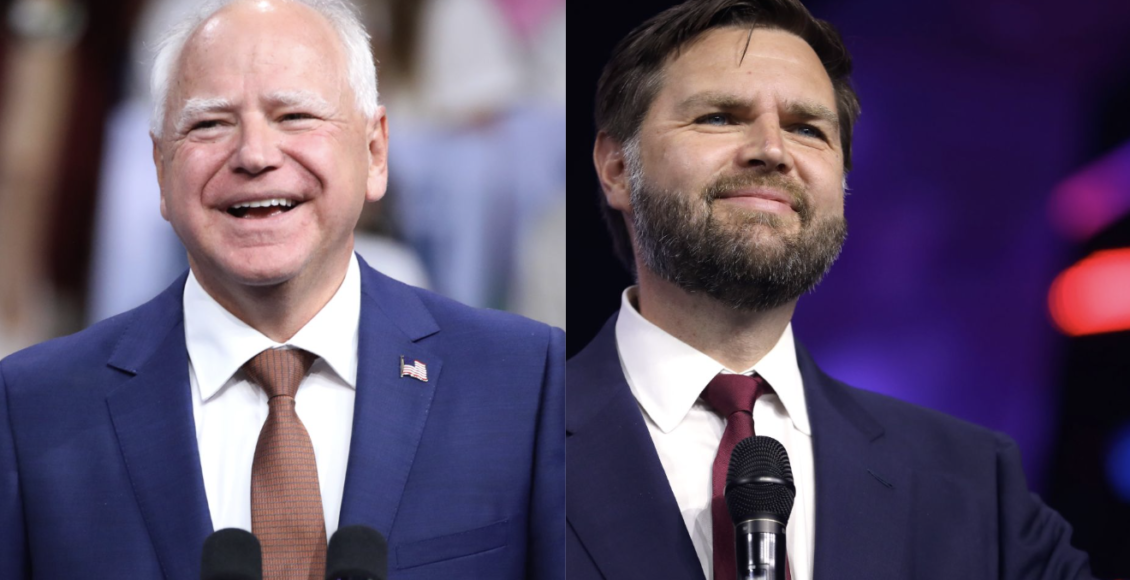Who Are the VP Candidates? : A Look at Their Histories and Shifting Views

It’s no secret that the 2024 US presidential election has been full of unprecedented twists and turns. With Biden’s unexpected decision to withdraw from the race, and a showdown between a former president and a current vice president, this election is shaping up to be unlike any in American history. Many voters are grappling with uncertainty about the nominees—particularly the vice-presidential candidates, J.D. Vance and Tim Walz, both of whom have undergone significant ideological transformations throughout their careers.
J.D. Vance’s political journey, like that of former president Donald Trump, has been relatively brief but eventful. He first gained national recognition with his 2016 memoir Hillbilly Elegy, a raw account of his impoverished upbringing in Middletown, Ohio. The book offered a unique glimpse into the struggles of the post-industrial white working class, earning him a reputation as a voice for their concerns. A Yale Law School graduate and military veteran, Vance initially positioned himself as a critic of Trump and the populist wave that swept the Republican Party. He became especially known for his outspoken criticism of Trump, calling himself “a never Trump guy” and describing Trump as “noxious” and “leading the white working class to a very dark place.”
However, by his 2021 Senate campaign, Vance’s political alignment had taken a sharp turn to the right. Once an advocate for addressing climate change, he consistently voted against the Biden administration’s climate policies in the Senate. Vance also reversed his stance on foreign intervention, opposing aid to Ukraine but later advocating for strong U.S. support for Israel in its conflict with Hamas. Perhaps the most dramatic shift was his newfound support for Trump. Having once been a vocal critic, Vance embraced Trump’s claims that the 2020 election may not have been fair, and even publicly supported him during his criminal trial. This reversal led many to accuse Vance of political opportunism, adapting his views for personal gain.
Similarly, Tim Walz’s political trajectory has shifted notably over the years. Raised in a working-class family in West Point, Nebraska, Walz served in the military before becoming a teacher and football coach in Minnesota. When he first ran for Congress in 2006, he focused on moderate policies, holding centrist views on issues like climate change, healthcare, and gun control. However, as his career progressed, Walz became more aligned with progressive causes. He voted for gun restrictions, supported the Affordable Care Act, and advocated for LGBTQ+ rights, distancing himself from his earlier moderate stance.
As Minnesota’s governor, Walz solidified his progressive reputation. In 2023, Minnesota Democrats compiled a “dream list” of progressive policies ranging from reproductive rights protections and gun control measures to universal school meals and child care assistance. Walz signed each one into law, earning the nickname “Minnesota Miracle.” Once seen as a moderate, Walz had fully embraced progressive ideals, becoming a champion of the left.
Both Vance and Walz have experienced significant ideological shifts, moving from moderate positions to more extreme ends of the political spectrum. In a contentious election where each side accuses the other of radicalism, examining their records is essential to understanding how and why these shifts occurred—and just how far they have strayed from their original platforms.
Edited by Helena Kennedy
Featured Images: Tim Walz and J.D. Vance by Gage Skidmore are licensed under CC BY-SA 2.0.
